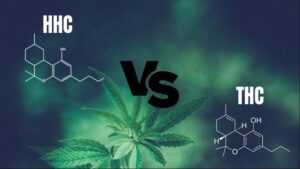
CBD, short for cannabidiol, is one of the many biologically active compounds called cannabinoids found in Cannabis sativa plants. Unlike THC, the primary psychoactive component in marijuana, CBD is non-intoxicating and does not produce the same euphoric effects. For many years, THC was considered the most popular cannabinoid, but with the passing of the Farm Bill in 2018, which made the cultivation of hemp legal as long as it contains less than 0.3 percent THC, CBD has taken the spotlight.
Hemp-derived CBD has become increasingly popular in recent years, with big-name stores like Sephora, Walgreens, and CVS starting to sell products containing CBD, and celebrities endorsing them. People are turning to CBD as a way to self-treat symptoms like anxiety and pain, sometimes as an alternative to opioids. However, it is important to note that the Food and Drug Administration (FDA) has not approved any uses of CBD in food, beverages, or dietary supplements. It is currently illegal for any company to claim that CBD has medical or therapeutic benefits.
While some studies suggest that synthetic versions of CBD may work on seizures and even have antibiotic properties, these results are still preliminary, and the quality of human research on CBD is spotty. According to Simon Haroutounian, chief of clinical pain research at the Washington University Pain Center in St. Louis, researchers still don’t know enough about how CBD works in the body to make any definitive claims.
One of the issues is that researchers don’t know how the body eliminates CBD after intake, as well as how CBD interacts with other drugs. Additionally, it is unclear how much CBD reaches the bloodstream after inhalation or oral consumption, and whether enough reaches target tissues. There is also a lack of reliable data on how often to administer CBD, or in what doses.
Forensic toxicologist Michelle Peace notes that although some data support the claim that CBD does not produce the euphoria associated with THC, it is still psychoactive. CBD may relieve anxiety and PTSD symptoms, which means it has a psychoactive effect.
While CBD is perceived as safe and attractive and is gaining widespread use, researchers are still learning about its potential benefits and risks. It is essential to understand that the use of CBD products should be approached with caution, and individuals should consult with a healthcare provider before using them.
Additionally, CBD was being researched for its potential therapeutic benefits, and some studies have shown promising results. In 2023, ongoing research is exploring the potential benefits of CBD for a range of conditions, including anxiety, depression, insomnia, chronic pain, and epilepsy.
One of the most significant potential benefits of CBD is its ability to alleviate symptoms of anxiety and depression. CBD has been shown to have anxiolytic (anxiety-reducing) effects in preclinical and clinical studies, and some experts believe that it could be a useful alternative or complementary treatment for people who experience anxiety or depression.
CBD may also have potential benefits for people with chronic pain. Some studies have shown that CBD can help reduce pain and inflammation, and may be useful for conditions like arthritis, neuropathic pain, and fibromyalgia.
Another area of research interest is the potential use of CBD for treating epilepsy. In 2021, the FDA approved the use of a CBD-based drug called Epidiolex for the treatment of certain types of epilepsy. Ongoing research is exploring the potential of CBD for other types of epilepsy as well.
In Conclusion
While more research is needed to fully understand the potential benefits and risks of CBD, early studies suggest that it may have a range of therapeutic uses. As always, anyone considering using CBD for medical purposes should consult with their healthcare provider first.







